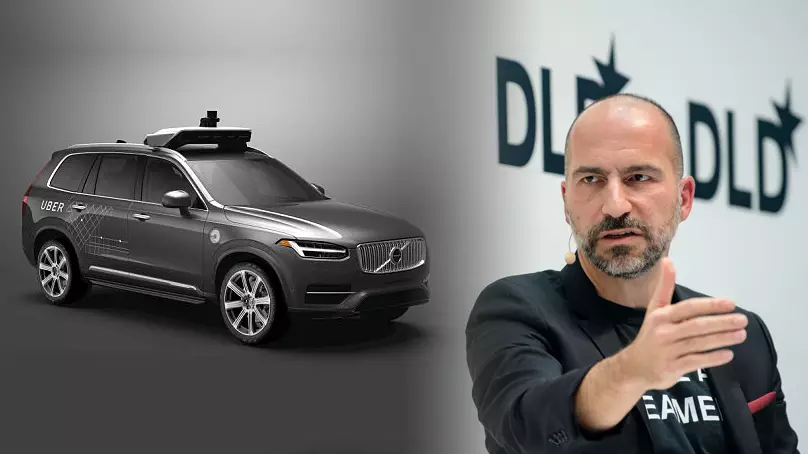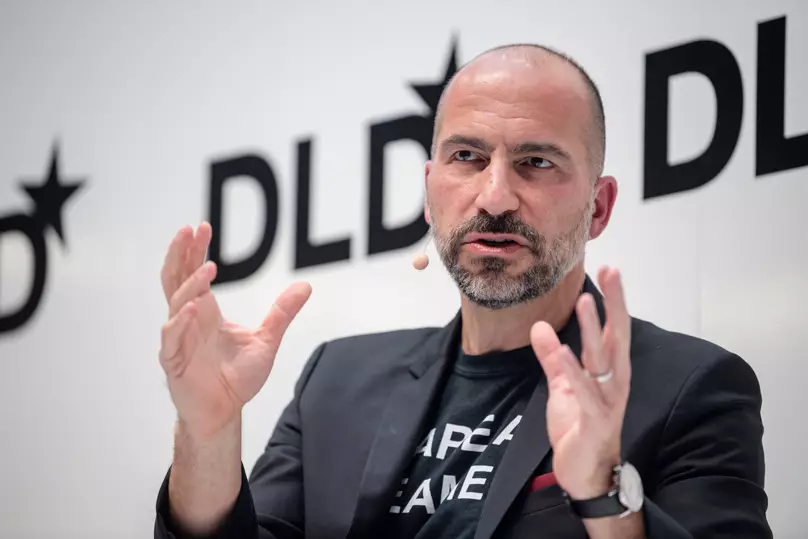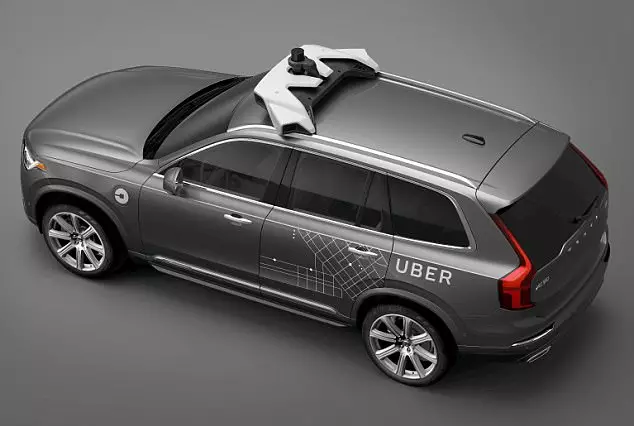
The journey back from a night out would probably be a lot less fun without a taxi driver. There would be nobody who you can shout at to turn up the radio or to bore the arse off with your drunken views on politics and philosophy.
Well, according to the head of Uber, taxi drivers could be a thing of the past very soon. Last year, the car hailing app bought up a load of specially adapted Volvo cars - 24,000 to be precise - with the intent of turning them into the world's first fleet of driverless taxis.
They signed a joint deal with Volvo that will see them spend £211m ($300m) to develop the technology that will take the driver out of the taxi equation.
Advert
Now, in a speech to a technology conference, the CEO of Uber, Dara Khosrowshahi, has said that this technology is not as far away as we might think it is. In fact, it could be in the next year-and-a-half that some people will be getting driverless rides.

Speaking at Bloomberg's The Year Ahead event, he said: "We will have autonomous cars on the road, I believe within the next 18 months. And not as a test case, as a real [use] case out there."
Big words, that's for sure. We should probably take them with a pinch of salt, though, as it's most likely that only about five percent of the cars that are ordered will be driverless.
Advert
This is due to the size and complexity of the task of mapping, to a degree of a matter of centimetres, the US cities that the technology has been trialled in.

The service will likely launch in one of the cities of Pittsburgh, Tempe, Phoenix, or San Francisco (the cities that have been used for tests) but the process will be gradual.
They will aim to increase the amount of driverless cars on the road as the technology and information improves. The cars will also learn to adapt to more and more real world situations as they go about their business.
Advert
Khosrowshahi has said that fully driverless Uber cities are a long way off - perhaps 10 or 15 years.
He said: "The road from now, to full autonomous is going to take a significant part of work.
"We map every city to three centimetres, [that takes] a huge amount of effort and data, and sensor tech has to come down very significantly. Full autonomy, I think we're talking 10 to 15 years."
Featured Image Credit: Volvo / PA